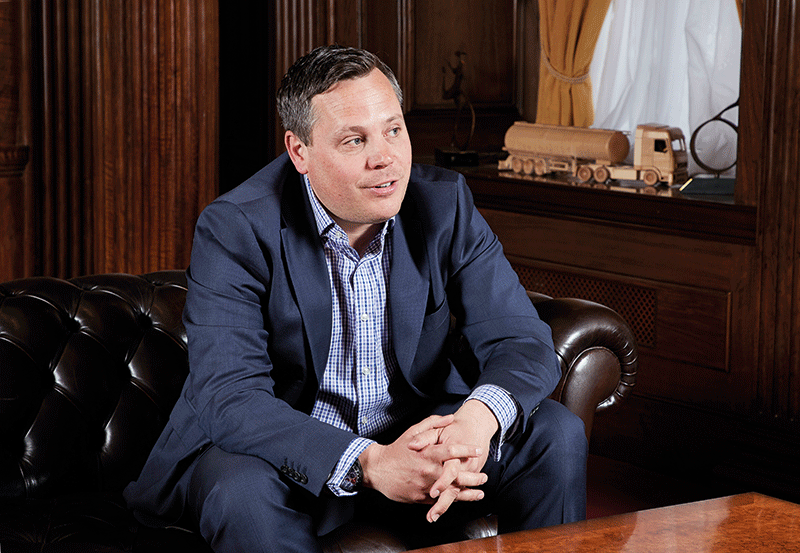
Widnes-based tanker specialist Suttons was founded by Alf Sutton in 1926 and remains family-owned. The founder’s grandson John Sutton was appointed CEO of Suttons Group in 2013 and the Sutton family still form the majority of the Suttons Group board.
Suttons Group has two operating divisions: Road Tankers, headed by MD Michael Cundy; and Suttons International, where Barry McNally is MD. Road Tankers turns over around £70m a year, with the business split roughly 55% chemicals, 35% gases and 10% fuels. It pulled out of the foods business when it handed over its British Sugar contract to Abbey Logistics in 2016.
Cundy (pictured) was promoted to the top job at Road Tankers in 2014 from his previous role as HR director, an unusual career path in a major 3PL, where bosses are more often drawn from the operations or, increasingly, finance departments.
After leaving university in 1998 with a business degree, Cundy started out “in a fairly junior HR role” with UK Coal, the privatised coal mining operation formerly known as British Coal.
“I really enjoyed that,” he says. “There were still a lot of people around who had been part of the strikes in the 1980s. The industrial relations platform had changed but there was a lot of history and a lot of learning that I got from that.”
Cundy stayed for seven years, progressing through the HR team, before being approached by Suttons in 2005. He was appointed group HR manager, responsible both for the UK Road Tankers operations and the International business.
“It was a great role for me and a step up in terms of the challenge and the opportunity, particularly with the International dimension,” he says. “I felt at home pretty much straight away with the family and took to it quickly.
“I did that for almost three years, and then became HR director on the main operating board. For me that was a fantastic progression which I think reflected my contribution and the fact that the business is good at giving people opportunities.”
Opportunity knocks
In 2014 another opportunity came along.
“I had an aspiration to get in to more general management but I was never quite sure in what part of the business,” Cundy says. “In the summer of 2014 we were well into the acquisition of Imperial Tankers. I was still HR director but I'd been appointed implementation director for the acquisition, which we completed in September 2014.
“In October 2014, I became MD of UK Road Tankers. The good thing was I didn't have too much time to dwell on it or think about all the things that I perhaps didn't know at that stage.”
Cundy describes the last two and a half years as “the best but equally the most challenging of my career bar none”.
“That’s about the learning curve I've experienced since then and just the breadth of things that I'm now involved in,” he says. “I was fairly close to operation from a HR perspective, but the commercial side, spending time with customers, business renewals, new business tenders; all those things have been a learning curve.
“The part I probably I get most enjoyment out of is meeting customers, working with them to look at new opportunities and trying to understand the challenges they're facing in their business and how we can support them.”
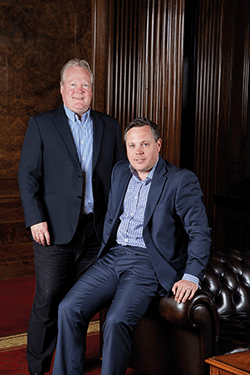
John Sutton (pictured with Cundy) works closely with Cundy while giving him “a great deal of autonomy” and being a family business – albeit one that turns over £180m a year – means a flat management structure and short reporting lines.
“We’re not a business that's constrained by unnecessary formality or structure and it helps when we're trying to do deals because we get quick responses,” says Cundy. “You can get a decision about capital investment or a different commercial approach very quickly.”
Road transport is a tough and demanding business to work in, which may partly explain why so many hauliers are still family-owned.
“It absolutely is and I think from that perspective you have to have that passion and commitment,” says Cundy. “There are sectors with significantly higher margins where you can take your money and get better returns. I've known the family for 12 years now and the heritage of the business means a lot to them.”
Haulage bug
While Cundy has been bitten by the haulage bug, he knows that getting other young people to see past the long hours, stress and tight margins that go with the territory remains an issue.
“It sucks you in and it's hard to get away,” he says. “One of the challenges is how we get more young talent coming through.
“A lot of people start on a traffic desk and that means early starts and late finishes and not stopping for your lunch and coming in at the weekends. If people don't have the appetite to do it they will find something else to do.”
Road Tankers employs 550 drivers of which Cundy says only “a small number”, mainly working in the South East on Suttons’ fuel operation, are foreigners who might be affected by immigration restrictions post Brexit. He is more concerned about the impact Brexit might have on the UK economy.
“We are still very unclear about what the impact is going to be on our business,” he says. “We are seeing downward pressure on volumes. We're retaining our customers but the volumes are slightly lower.
“Brexit does cause some concern because a lot of our key accounts are European-based businesses and there's a risk that decisions will be taken to go out of the UK and back into Europe. Ultimately there's not a massive amount we can do if a particular customer decides that they want to exit the UK and consolidate operations in Europe.”
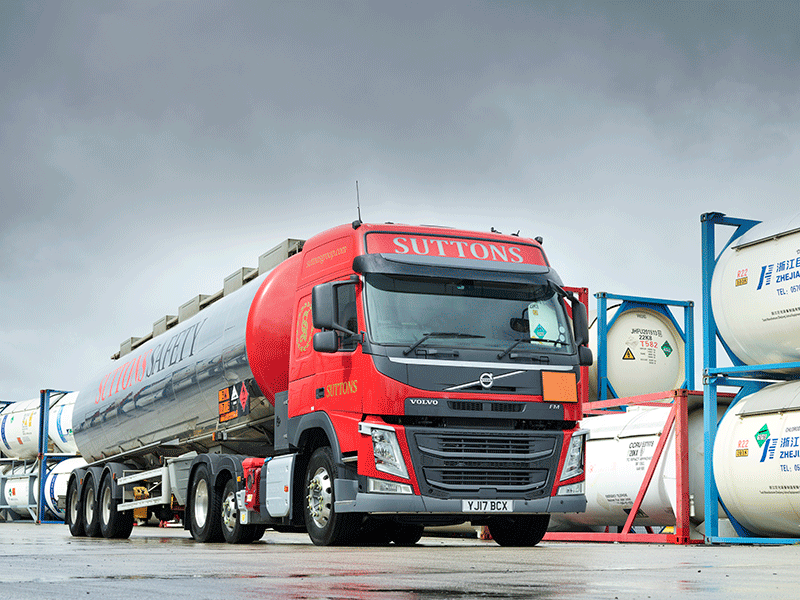
But equally Cundy sees an opportunity for Suttons to be a “bridge” between the UK and Europe.
“We have an infrastructure with the UK road business, the ISO tank business and particularly our short-sea business which bridges the two. We can work in Europe, between Europe and the UK and within the UK,” he says. “We're having a strategic review at the moment. We are very committed to the bulk hazardous sector, but that's not restricted to the UK. A lot of our major accounts are international European businesses and for some of those customers that we work for in the UK, there's an international or European requirement. Very definitely we have to be able to support those businesses with that requirement.”
Hazardous products
Since Suttons relinquished its long-standing contract with British Sugar to foods specialist Abbey Logistics, the “vast majority” of Suttons’ business has been in hazardous products.
“That decision to give up British Sugar after eight years was a very tough one to make,” says Cundy. “It was one of our biggest accounts. I had to make a call on how we supported our range of customers and not just one particular customer, and for me it was the right call.
“It enabled us to get closer to those core customers in the hazardous sector which is absolutely the majority of our work. It was the only food business we operated and it had become more challenging to make the right return with that contract.”
That is not to say hazardous products is a highly profitable sector, despite the specialist nature of the work and high cost of the equipment.
“It's not a particularly high margin business but we have a long-term commitment to working in this sector so we have to believe that we can make fair and reasonable returns on our investment,” says Cundy. “We seeing again an evolution of the marketplace and, as we renew a lot of our longstanding accounts, we are having to demonstrate to our customers that we can be more flexible than perhaps we have been in the past.”
This ‘flexibility’ might involve less dedicated and more shared user facilities, for example.
“Historically customers have been more comfortable having dedicated equipment and labour to be sure of having availability of those resources,” Cundy says. “They were prepared to pay a premium for that but now our customers’ margins are under pressure so they want us to find ways to reduce their spend without impacting on service.
“So we might move to a model where it's a smaller core, but because of the network we've created through the Imperial acquisition we're able to support that core with drivers across a range of disciplines.
“That reduces the cost for customers because they are paying for what they use as opposed to paying for a contingency that they're not necessarily going to use. We can still make a fair return on that but it's all about how well we plan and execute, how well trained our drivers are so that they can operate in different parts of the business.”
Imperial deal
That was the business logic behind the Imperial acquisition, which gave Suttons the capacity needed to deliver this flexibility at an acceptable cost. Suttons has consolidated its network into nine key depots since acquiring Imperial, merging two depots to create its biggest site in Stockton-on-Tees, integrating operations at Suttons’ headquarter in Widnes and consolidating two depots at Willenhall.
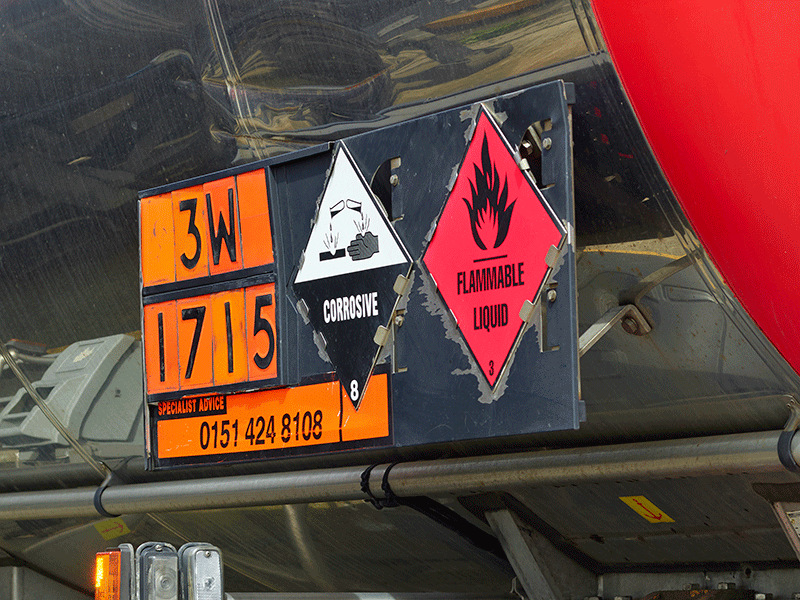
“We've invested to create this network and from a strategic perspective it should create best advantage for both ourselves and our customers,” says Cundy. “The way we manage that compared with our competitors is our scale. With 550 drivers we can work with those people who want to do nights-out and still accommodate those drivers who want more regular shifts.
“That's got to be part of the evolution of our business. We have to do more work on nights and weekends. We have to have the flexibility that allows us to do that. Too often in our business the trucks are sat overnight and on weekends not moving and therefore not generating revenue.”
Since the Brexit vote and fall in the value of the pound, Suttons has seen fuel and other costs increase.
“Fuel has been continually going up week by week for almost a year,” Cundy says. “We've worked with our customers to put mechanisms in place to manage that but it still has an impact on our margins.
“We are currently investing £17m in 200 new tractor units over the next two years. We're pleased with the deals we’ve done - vehicles are a big part of our costs and that's something we have to manage.”
Volvo fleet
Now the Imperial acquisition is bedded in Suttons owns 450 trucks and 700 tankers. It is a mixed fleet but 90% of the new vehicles will be Volvos.
“We've made that commitment with the suppliers and our plan is to replace the fleet every five years,” says Cundy. “That again is a statement of our intent in terms of our long term commitment to the market.”
Being in the tanker market, unladen weight is a key factor in choosing tractor units, but driver acceptance and the strength of the dealer network were also taken into account.
“Having an infrastructure where we can get our units maintained effectively is key,” says Cundy. “The driver's perspective is also important.”
Customers under their own costs pressures are often less than sympathetic when their logistics contractor asks for rate rises, but Cundy says he has had a fair hearing.
“We're really pleased with a number of renewals in the last six months where we have been able to have discussions about the apprenticeship levy, about fuel costs and about our investment in new equipment,” he says. “Those discussions are clearly always going to be difficult. We're not going to sit in front of a customer and say, ‘we want an X percentage increase,’ and they're just going to say, ‘OK, where do I sign?’
“But because of the nature of our relationships with customers, we do have a platform for constructive, sensible discussion. We try to look at the opportunities to do things slightly differently, to challenge the norm and to create value that both businesses can benefit from. That's what will in the long term be key to retaining those customers.”
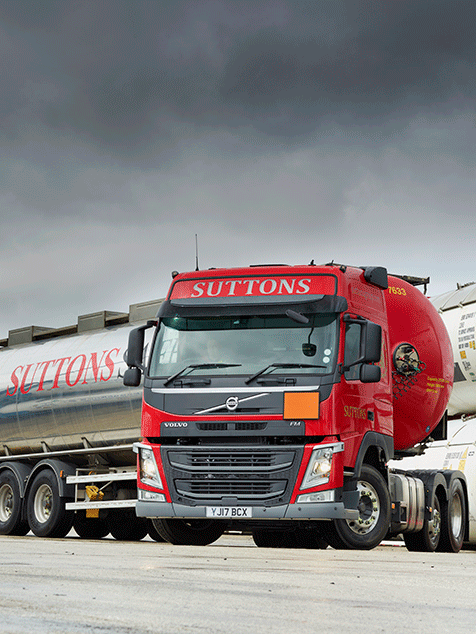
Still scope for growth
Suttons is carrying out a strategic review of its business post-Brexit, and that could involve some element of continental transport.
“Our vision for the business is very committed to UK bulk road transport in the hazardous sector, but that's not restricted to the UK,” says Cundy. “A lot of our major accounts are European businesses. For some of those customers that we work for in the UK, there's an international or European requirement. We very definitely have to be able to support those businesses with that requirement.”
Some of Suttons’ gas fleet already runs across the channel, and it also has arrangements with European hauliers if there is a severe spike in demand that Suttons can’t handle alone. But looking further ahead, Cundy is keenly aware of the pitfalls of buying or setting up an operation on the continent.
“We really would have to get in to the detail of understanding it first and not make an assumption that a model that works in the UK will work in Europe,” he says. “We would work with our customers and develop solutions that help them generate value in some way. That will create an infrastructure for us and then that potentially gives us the capacity to build beyond that.
“It isn’t about simply saying, ‘right, we're going to set up a trucking operation somewhere in mainland Europe’. That's not the way we view the short or medium term strategic development of the business.”
UK growth
More likely is that Suttons will continue to expand in the UK, and Cundy says there is plenty of scope to win new business.
“I wouldn't be able to convince our chief executive and our shareholders to keep investing in the business if we didn't think there were lots of opportunities,” he says. “There are opportunities with customers we don't currently work with and opportunities to develop what we do with our current portfolio of customers.
“We think there's massive scope, perhaps where our competitors feel that their futures lie elsewhere.”
As part of the drive to improve utilisation of the tractor unit fleet, Suttons is looking at complementary areas of work it can add to its core business.
“We are looking at the segmentation of the market and if there is transferability of skills and competencies that creates an opportunity for us,” Cundy says. “We are looking at the breadth of the sectors we operate in and adjacent sectors to see where opportunities might exist.
“We are not talking about moving into general haulage, but we are looking at perhaps doing more fuels business and developing into specialist areas which benefit from our technical expertise and focus on health and safety. We are looking at segmentation of the market and there are adjacent areas where our core competency around bulk hazardous road transport could be transferable.”
Cundy says the business is constantly searching for ways to expand and develop, and working closely with its customers throws up opportunities for Suttons to do more work with them, such as adding extra on-site services like drumming operations.
“The big challenge is to keep building the infrastructure and continuing to invest,” he says. “It's a really competitive market place and we have to make sure we're as efficient and fleet of foot as we possibly can be. If we are really good at that, we will continue to be highly successful.”
Handling the skills shortage
Even before Brexit, the UK had been experiencing a driver shortage and, although tanker driving is seen as a top job most drivers aspire to, Suttons has not been immune.
“The driver shortage has definitely affected our business in pockets,” says Cundy. “In some areas we have much more difficulty recruiting and retaining drivers than in others. The South East is a particular challenge for us both in recruiting and retaining drivers. A lot of that is about them going for a small increase in pay somewhere else.
“The pay gap that once existed between tanker drivers, who see themselves at the very high end of the professional spectrum, and those working in general haulage has narrowed. The guys working in that part of our business are doing a really difficult job, tipping and loading often very hazardous products.
"Working for a supermarket say is a much easier job, and while it might not be quite the same rates it can be more comparable than it has been in the past. That’s part of the challenge to get people to come and work in our sector in particular.”
While Cundy believes driver recruitment and retention is about more than just pay, he is concerned that wages will have to rise.
“It isn’t just about wages, it’s about the environment you create for people to work in,” he says. “But we will see pressure on rates of pay in our sector, and it’s something we have to keep a very close eye on to make sure we can continue to get the most experienced and capable drivers into our business.”
Subbies
Despite the hazardous nature of much of Suttons’ work, the company does make use of subbies and agency drivers.
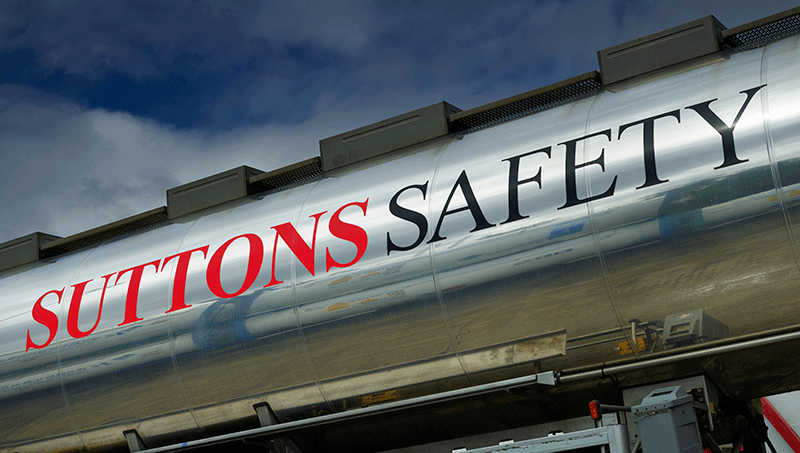
“We have always used a small proportion of sub-contract resource and agency labour,” Cundy says. “That’s about helping manage the spikes in work at particularly busy times.
“I don’t see that model changing in terms of our core business and actually there might be more opportunities to work with some of our customers as a 4PL. In that case we could operate an additional sub-contract fleet that they might historically have planned to manage themselves.
“When there is pressure on volume and on margin, and there are real challenges in the marketplace, we have to offer flexibility to our customers. One way of flexing is how we can manage our labour.”
Finding drivers who are prepared to tramp around the country and spend nights out is getting harder, however.
“The way we manage that perhaps compared with our competitors is by using our scale,” says Cundy. “With 550 drivers across our business, those who have young families and want more regular hours would be dedicated to specific contracts, but there are drivers where their lifestyles are actually suited to nights out, working weekends or working nights.
“That's got to be a part of the evolution of our business. To meet the aspirations of our customers and give the return we need to our shareholders we have to work flexibly. So we have to do more work on nights and over weekends.”
Apprentices
Suttons has three workshops - in Stockton-on-Tees, Widnes and in Eastham that supports its bitumen contract with Swedish firm Nynas – and has run a traditional workshop apprenticeship scheme for many years. It is now looking at extending apprenticeships into other parts of its business.
“Our workshop apprenticeships have been very successful over a long period of time,” says Cundy. “The apprenticeship levy inevitably is going to put more focus onto what we do and will be positive because it will widen the scope in terms of people going into operational and commercial roles.
“Again, one of the challenges is finding talent who we can bring in at the right level to help bolster our commercial teams.”
Cundy does not see apprenticeships as a suitable route for training drivers - yet.
“In our sector we tend to recruit drivers who've done their grounding through general haulage,” he says. “It's getting to a point where we're going to take those guys in at a younger age without that experience and use the apprenticeship levy to create that population of drivers. We're not at that point yet.”













